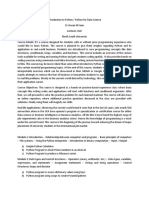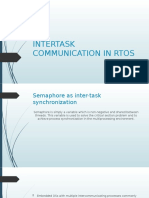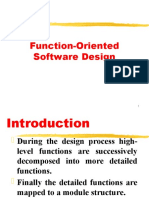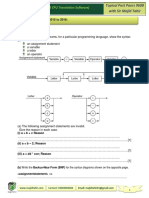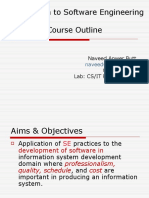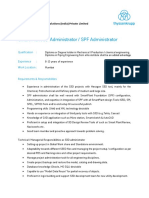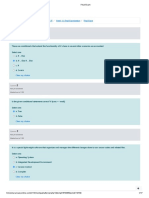0% found this document useful (0 votes)
12 views8 pagesPython Course Outline
The document outlines a comprehensive Python programming course divided into multiple series: Basic, Beginner, Intermediate, Advanced, and Master. Each series covers essential topics ranging from programming fundamentals, Python syntax, and control flow to advanced concepts like machine learning, web development, and cloud computing. The course includes practical exercises and projects to enhance learning and application of Python skills.
Uploaded by
deepasunrise12Copyright
© © All Rights Reserved
We take content rights seriously. If you suspect this is your content, claim it here.
Available Formats
Download as PDF, TXT or read online on Scribd
0% found this document useful (0 votes)
12 views8 pagesPython Course Outline
The document outlines a comprehensive Python programming course divided into multiple series: Basic, Beginner, Intermediate, Advanced, and Master. Each series covers essential topics ranging from programming fundamentals, Python syntax, and control flow to advanced concepts like machine learning, web development, and cloud computing. The course includes practical exercises and projects to enhance learning and application of Python skills.
Uploaded by
deepasunrise12Copyright
© © All Rights Reserved
We take content rights seriously. If you suspect this is your content, claim it here.
Available Formats
Download as PDF, TXT or read online on Scribd
/ 8



























